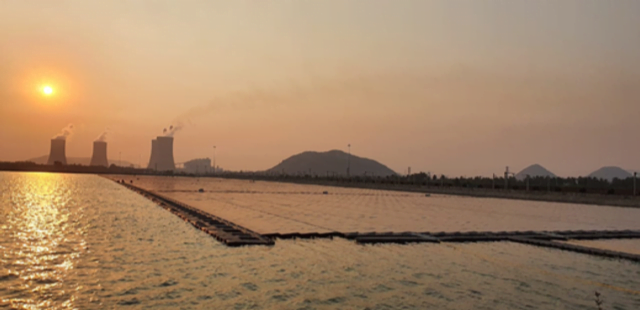[ad_1]
India’s single largest solar park
Part of: GS Prelims and GS -III – Energy; Conservation
In news
- NTPC Renewable Energy Ltd has received the go-ahead from the Ministry of New and Renewable Energy (MNRE) to set up a 4750 MW renewable energy park at Rann of Kutch in Khavada, Gujarat.
- NTPC REL, NTPC’s subsidiary was incorporated in October 2020 to accelerate the Renewable Energy business of NTPC.
- This will be India’s largest solar park to be built.
- NTPC REL has plans to generate green hydrogen on a commercial scale from this park.
Other initiatives of NTPC
- It aims to build 60 GW Renewable Energy Capacity by 2032.
- Currently, it has an installed capacity of 66 GW across 70 power projects with an additional 18 GW under construction.
- It has also commissioned India’s largest Floating Solar of 10 MW (ac) on the reservoir of Simhadri Thermal Power Plant, Andhra Pradesh.
- 100 MW Floating Solar Project on the reservoir of Ramagundam Thermal Power Plant, Telangana is in the advanced stage of implementation.

Image Source: NTPC
What are floating Solar Plants?
- It refers to the deployment of photovoltaic panels on the surface of water bodies.
- Advantages:
- Address Land Acquisition Issues: Floating solar plants balance high population density and competing uses for available land.
- Cooling Effect: The bodies of water exert a cooling effect, which improves the performance of solar photovoltaic panels by 5-10%.
- Reduced grid interconnection costs, reduced water evaporation, improved water quality, and reduced algal blooming.
- Challenges:
- Expensive
- Degradation and Corrosion: The installation is at risk of degradation and corrosion due to moisture
- Developing floating solar projects requires a thorough understanding of water-bed topography and its suitability for setting up anchors for floats.
News Source: PIB
[ad_2]


